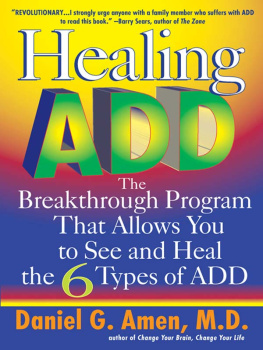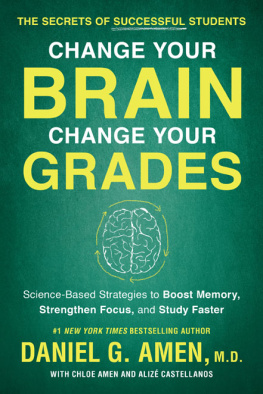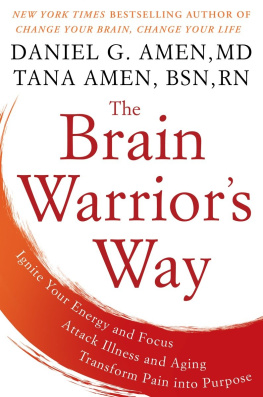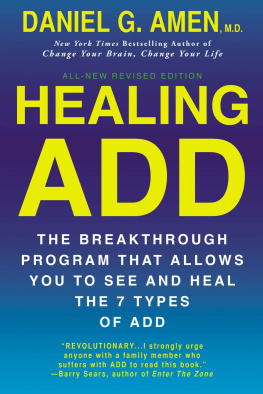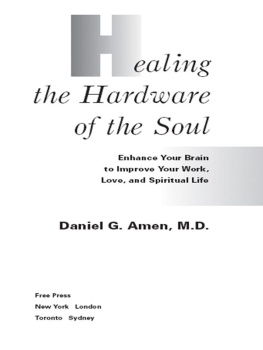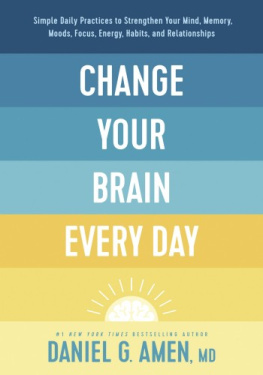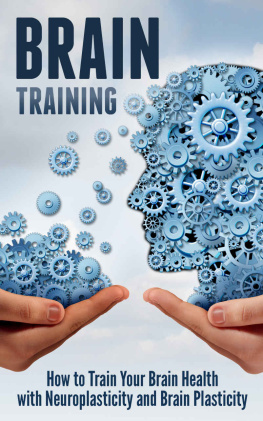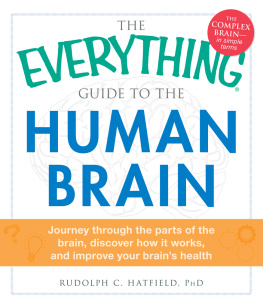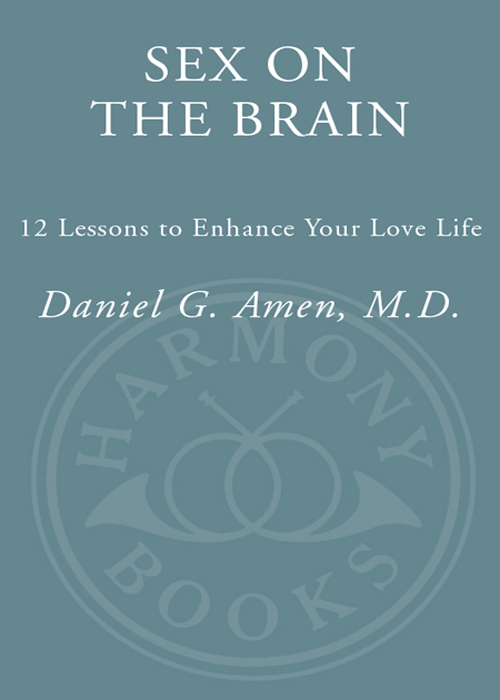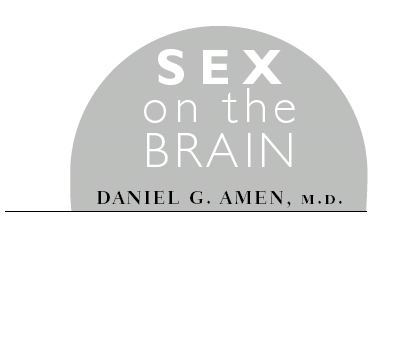This author is available for select readings and lectures. To inquire about a possible appearance, please contact the Random House Speakers Bureau at or (212) 572-2013.

The Brain Is the Largest Sex Organ (and Size Matters!)
As you walk by me, millions of nerve cells spark in my brain and I have to turn to look at you again.
You look back at me and a soft, brief smile forms on your lips. As you notice my eyes following you, your smile triggers an adrenaline release that causes my heart to leap with excitement.
Chemicals send increased blood flow to sensitive areas, as thoughts of you light the emotional fire centers of my mind.
For a brief moment you literally live in my skin.
As we connect, my mind works overtime obsessing on your smell and the color of your eyes.
You beat in my heart.
You pulse in my nervous system from the nerve pathways of my brain to the soles of my feet.
I start to become disoriented when we are apart.
Over time, your touch becomes essential.
I crave you.
Your body feels warm and reassuring.
I need it next to me.
I sleep peacefully knowing you are near, and wake often in the dark to feel your skin.
I never want to get out of bed when I am lying next to you.
I look for you in my brain when you are away.
Your voice sweetens the vibrations in the air.
My mind beseeches me to make love to you, again and again.
Our bodies navigate space together.
Your mind reads mine as you know how I want to be touched.
How does that happen?
You must have cells that mirror my desires.
The neurons of my eyes light up with sparks when you walk in a room, especially if you have been away for a while.
Songs, smells, places, and pictures never let me forget you as they trigger the memory centers in my brain where you live as if you were next to me.
The judgment part of my brain watches what I say when we are together so I can protect your feelings.
I watch how your eyes, face, and body move as you talk to me, to know if you are happy, desirous, or in need of a hug or understanding.
Even though it feels genital, the vast majority of love and sex occurs in the brain. Your brain decides who is attractive to you, how to get a date, how well you do on the date, what to do with the feelings that develop, how long those feelings last, when to commit, and how well you do as a partner and a parent. Your brain helps you be enthusiastic in the bedroom or drains you of desire and passion. Your brain helps you process and learn from a breakup or makes you vulnerable to depression or obsession. When the brain works right, it helps you be thoughtful, playful, romantic, intimate, committed, and loving with your partner. When the brain is dysfunctional, it causes you to be impulsive, distracted, addicted, unfaithful, angry, and even hateful, thus ruining chances for continued intimacy and love.
Your brain is also the seat of orgasms. Some research implicates the right hemisphere of the brain. In fact, certain forms of epilepsy, especially those found in the right temporal lobe, have been associated with spontaneous orgasms. In one case from Taiwan, a forty-one-year-old woman had seizures that were induced only when she brushed her teeth. The seizure started with the feelings of being sexually aroused, then she felt an orgasmlike euphoria wash over her, which was followed by feelings of confusion. Her brain-imaging studies showed problems in the right temporal lobe, an area that has been associated with both orgasms and religious experience. When someone has orgasmiclike feelings when brushing her teeth, odds are that she will have very clean pearly whites.
Scientists agree that the brain is the organ of behavior; as such, it really is the largest sex organ in the body (about three pounds), and in this case size really does matter. Our brain becomes less and less active and decreases in overall size as we age. This is true for males and females and there appears to be an equal loss of gray matter (nerve cell bodies) and white matter (the connections between nerve cells). If you learn to take care of your brain, however, it can be active and healthy throughout your life. With targeted interventions, you can impact brain health, lose less brain tissue, and keep your brain healthy well into your elderly years.
Why does this matter to sexual function? As the brain dims in activity over the decades, so, too, does many peoples sexual function. The two go together. In men between the ages of forty and seventy studied over a nine-year period, there was a significant decline in sexual function with age. This is consistent with past studies that have shown a decline in sexual desire, intercourse, and erection frequency. Erectile dysfunction (ED) is very common and increases with age. Forty percent of men in their forties, and 70 percent in their seventies had problems. In women, aging and menopause often negatively affect sexual interest and performance.
A major reason underlying both sexual and brain dysfunction is decreased blood flow. Blood does so many important things. It brings oxygen, sugar, and nutrients to your cells and it takes away waste products. Anything that interferes with healthy blood flow will impair an organs functioning. Decreased blood flow to genitals from hypertension; vascular disease; diabetes; toxic exposure, such as drug abuse or smoking; physical trauma; and other causes impairs sexual function. Increased blood flow, from targeted interventions including exercise, ginkgo, and compounds that increase nitric oxide, such as Viagra and ginseng, improves function and reverses aging.
Likewise, decreased blood flow to your brain, from any cause, decreases brain function, which means you are likely to make impaired decisions and subsequently have less sex. Few scientists have looked at the connection between brain health and sexual behavior. Thats where I come in. My primary work is as a brain-imaging specialist. I have been doing imaging work for more than sixteen years and my clinics have the worlds largest database of scans related to behavior, more than 35,000. We look at the brain on a daily basis using a sophisticated study called SPECT imaging. SPECT stands for single photon emission computed tomography, a nuclear medicine study that evaluates blood flow and activity patterns in the brain. We have looked at many healthy brains and brains in trouble. We have looked at the brains of children, teenagers, adults, and the elderly. We have looked at brains on medications, drug and alcohol abuse, supplements, prayer and meditation, gratitude, and a wide variety of psychological and biological treatments. We have looked at the brain in love, lust, commitment, divorce, domestic violence, sexual abuse, and loss.
At our clinics, our primary work is to help maximize peoples brain function for the most satisfying and healthy life possible. We help healthy people who want to improve their own brain function, as well as treat attention deficit disorders (ADD), mood and anxiety disorders, obsessive-compulsive disorders, addictions, temper problems, and memory disturbances. We often help individuals and couples who struggle with relationship and sexual problems of all kinds. It is really possible to dramatically improve brain function, whether your brain is troubled or not, and thus dramatically improve your life. Our guiding principle for the past sixteen years has been Change your brain, change your life.


